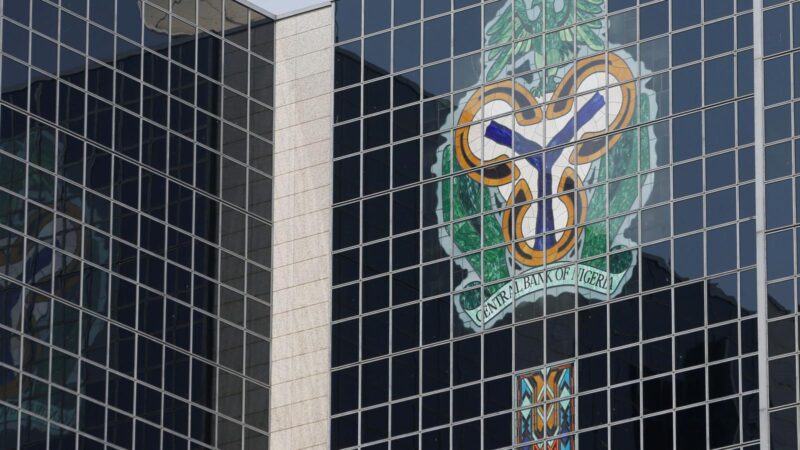Over 100 former employees of the Central Bank of Nigeria (CBN) have taken the apex bank to court, challenging what they describe as an unjust mass termination during a sweeping reorganization exercise.
The lawsuit, filed at the National Industrial Court in Abuja, brings to light critical questions surrounding employee rights, due process, and the impact of institutional restructuring on the workforce.
On May 24, 2024, the CBN initiated an extensive restructuring under the direction of President Bola Ahmed Tinubu, leading to the termination of approximately 200 employees, including several directors and high-ranking officials. Many of the dismissed employees argue that they were blindsided by the sudden decision and claim that they were not given adequate notice or an opportunity to contest their dismissals. Their legal representatives are contending that this lack of due process violates the employees’ fundamental rights, a stance that could reshape the legal landscape for employment practices within Nigeria.
Represented by Senior Advocate of Nigeria Mr. Ola Olanipekun, the claimants are pursuing several substantial compensations in what they deem a fight for justice and fair treatment. Olanipekun explained:
“Our claimants approached the Court to enforce their right to a fair hearing concerning their unjust dismissal by the CBN.”
The former employees are challenging the legality of their terminations on multiple grounds, asserting that the CBN’s actions have inflicted financial hardship and significant emotional distress. They have filed individual claims for compensation covering lost earnings, emotional damages, and litigation costs, setting the stage for a potentially landmark decision in Nigerian labor law.
Employee Claims and Financial Damages
The legal documents detail several demands by the dismissed employees, all highlighting the serious consequences of the alleged wrongful terminations. Among these are claims for:
- Compensation for Lost Earnings: Many claimants are seeking payment for salaries and allowances they would have received from the termination date until their retirement. For example, one claimant with nine years left in service estimates a loss of approximately ₦178,360,127.00. This demand underscores the significant financial impact that abrupt job loss can have on individuals, particularly in an uncertain economic climate.
- General Damages for Emotional Distress: The lawsuit includes a demand for ₦100 million in general damages, a sum the plaintiffs argue is warranted given the emotional toll and financial insecurity resulting from their unexpected dismissals. This claim speaks to the broader effects of job loss, especially for long-serving employees suddenly left without a livelihood.
- Litigation Costs: In addition to damages, the former employees are seeking ₦30 million to cover litigation expenses associated with pursuing justice. They argue that the financial burden of the lawsuit itself is a further strain imposed by the CBN’s actions.
- Post-Judgment Interest: The plaintiffs have requested a 21% annual interest on any awarded sums from the date of judgment until full payment, emphasizing the urgency of a swift and fair resolution.
Beyond the monetary aspects, the case also draws attention to the broader impact of organizational decisions on individuals’ lives, especially when due process is perceived to have been overlooked.
At its core, the lawsuit raises critical issues about employee rights, corporate governance, and the legal obligations of employers during mass layoffs or restructuring. Should the National Industrial Court side with the claimants, it may set a new precedent for how organizations must handle layoffs, particularly in terms of transparency and respect for employee rights.
Labor law experts note that this case could affirm the rights of employees to contest dismissals and seek compensation when due process is not observed. Nigeria’s labor laws emphasize fair hearing and just treatment, and this lawsuit could strengthen the enforcement of these principles.
Reactions from Labor Unions and Civil Society
The legal dispute has garnered attention from labor unions and civil society groups advocating for worker protections. Many view the lawsuit as a bold step toward holding influential institutions accountable for their treatment of employees, and they see it as a potential turning point in protecting workers’ rights.
Labor unions have expressed solidarity with the former CBN employees, emphasizing that fairness and due process during organizational restructuring are non-negotiable rights for all workers. They argue that no employee should be deprived of the opportunity to contest decisions that affect their livelihood, especially in cases of abrupt dismissal.









![Nigeria: Terrorists Kill Lieutenant, Six Soldiers In Ambush [photos] Nigeria: Terrorists Kill Lieutenant, Six Soldiers In Ambush How Nasco Group, Prominent Northerners Funded Terrorism, Including Boko Haram, in Africa - Investigations](https://reportafrique.com/wp-content/uploads/2021/10/bokoharam_corona-260x195.jpg)
Join our Channel...